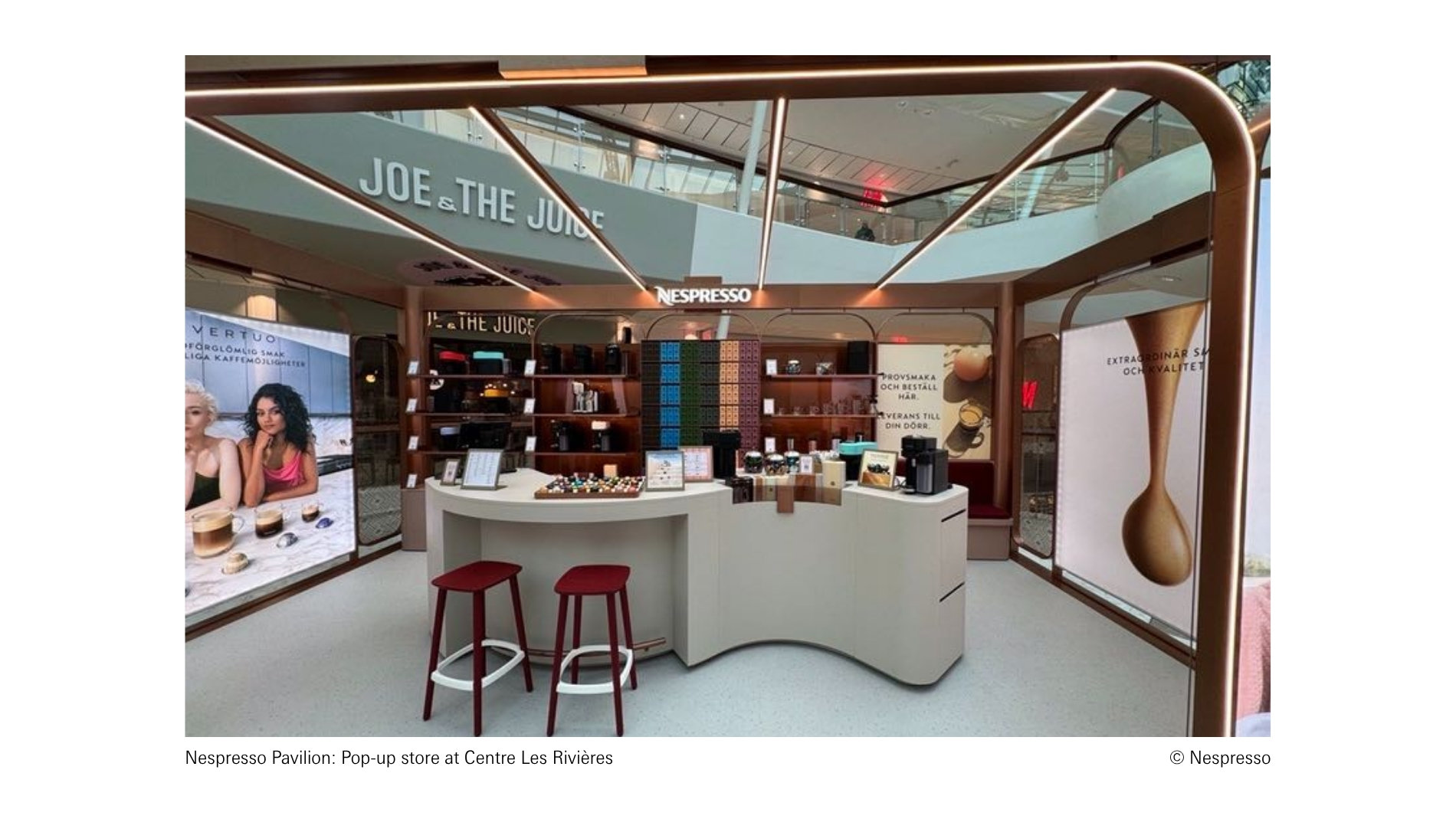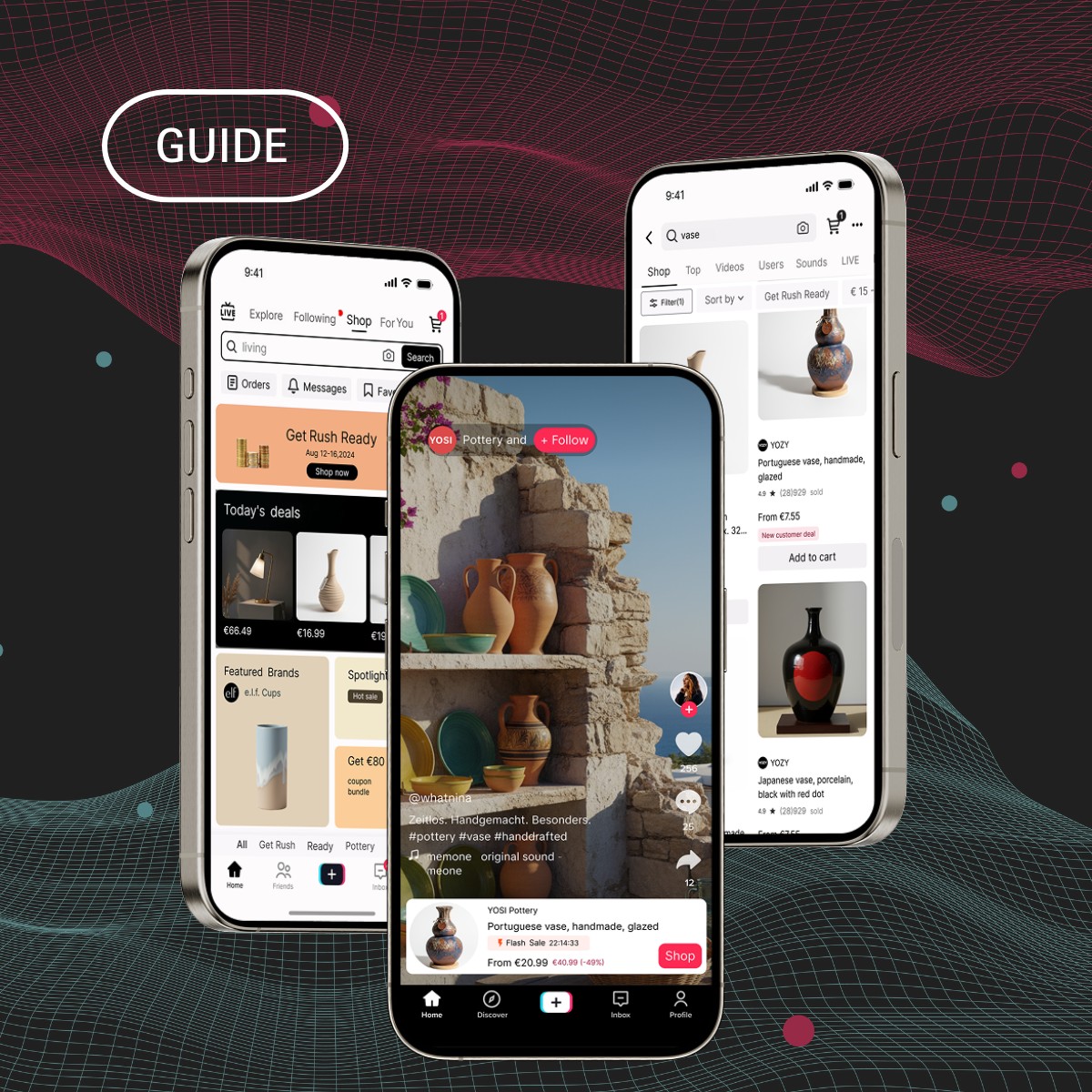Retail as a Service is revolutionising the retail sector: Flexible rental models for retail space, technology, and services offer brands and retailers new ways to reach their customers – fast, scalable and efficient. Discover more about RaaS and its potential!
What Is Retail as a Service?
Retail as a Service (RaaS) refers to a business model in which companies no longer build or operate infrastructure, technology, or services in retail themselves but instead use them flexibly as a service. Rather than investing heavily in retail space, systems or logistics, retailers turn to modular solutions that allow them to act quickly on the market.
The idea is similar to the principle of “Software as a Service”: companies rent rather than buy – including sales space, staff, IT services or marketing tools. This lowers the entry barriers for brands, enables efficient market testing and supports rapid scaling.
What Opportunities Does It Offer for Businesses?
For manufacturers and brands, RaaS presents opportunities in flexibility and proximity to the market. Direct-to-consumer models particularly benefit, as products can be placed directly with customers – for example in pop-up spaces, via smart sales kiosks or through in-store show rooming.
Start-ups and niche brands gain access to premium retail spaces without long-term leases or in-house sales teams. This enables new concepts such as the concept store, which offers regularly changing assortments or brand experiences.

Major brands are also using RaaS to test regional markets or make their physical retail presence more agile – for example, in 2024 Nespresso began rolling out its modular ‘Pavilion’ pop up boutiques in Canada, a fully self contained format of about 233 sq ft that can be dropped into shopping centre concourses to gauge footfall and sales before the company decides on a permanent store.
Who Is Retail as a Service Suitable For?
Cross-industry models benefit especially from RaaS. Whether furniture, electronics, homeware or lifestyle: any sector that relies on brand experience can benefit from the service. Even food manufacturers are increasingly trialling new distribution models via smart retail platforms or temporary spaces.
Digital strategies can also be combined with in-store offerings to create personalised experiences. At the heart of this are customer centricity and experience-driven retail.
How Does Retail as a Service Expand the Online Shop?
RaaS builds a bridge between the online and offline worlds. Companies create physical touchpoints exactly where their target groups are – for example, at events or high-footfall locations. This allows online shops to be complemented by temporary retail spaces, experience zones or interactive pop-ups.
Gamification in retail is becoming an increasingly relevant element: customers are actively engaged through playful actions such as digital treasure hunts or interactive screens, boosting brand loyalty and dwell time.
Such hybrid concepts offer real added value by combining digital convenience with tactile experience – a key component in the future of shopping.
Conclusion: RaaS Is the Future of Flexible Retail
Retail as a Service is fundamentally transforming the retail industry. Modular retail solutions give businesses access to markets that were previously tied to high investment. Flexibility, scalability, and customer proximity are the key advantages.
Combined with digital tools, online shops and personalised services, RaaS becomes a strategic building block of modern retail models – from start-ups to international corporations.
Questions and Answers on Retail as a Service
What Is Retail as a Service?
Retail as a Service refers to the use of retail infrastructure and services via a rental model. Brands can use space, technology, and staff flexibly without needing to invest themselves.
What Is Smart Retail Service?
A smart retail service combines technological solutions – such as intelligent shelf management, digital price labels or personalised offers – with brick-and-mortar retail. The aim is an efficient, data-driven and customer-focused sales process.








